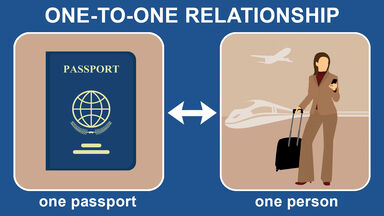Database Definition
dātə-bās, dătə-
data base, databases
noun
A large collection of data in a computer, organized so that it can be expanded, updated, and retrieved rapidly for various uses.
Webster's New World
Any large or extensive collection of information.
Webster's New World
(computing) A set of tables in a database(1).
The "books" database will have three tables, and the "customers" database will have two tables.
Wiktionary
(computing) A software program for storing, retrieving and manipulating a database(1).
Which database do you use: MySQL or Oracle?
Wiktionary
(computing) A combination of (1) and (2).
Wiktionary
Other Word Forms of Database
Noun
Singular:
databasePlural:
databasesFind Similar Words
Find similar words to database using the buttons below.





